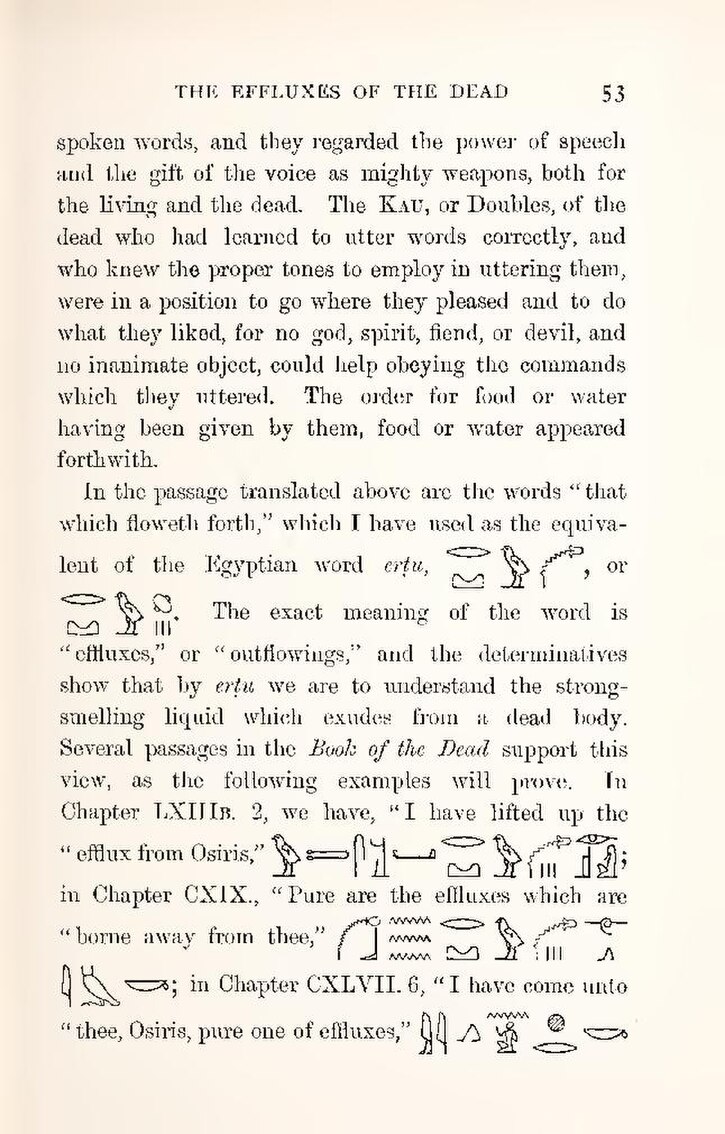spoken words, and they regarded the power of speech and the gift of the voice as mighty weapons, both for the living and the dead. The Kau, or Doubles, of the dead who had learned to utter words correctly, and who knew the proper tones to employ in uttering them, were in a position to go where they pleased and to do what they liked, for no god, spirit, fiend, or devil, and no inanimate object, could help obeying the commands which they uttered. The order for food or water having been given by them, food or water appeared forthwith.
In the passage translated above are the words “that which floweth forth,” which I have used as the equivalent of the Egyptian word erṭu,
| |
, or
| |
. The exact meaning of the word is "effluxes," or "outflowings," and the determinatives show that by erṭu we are to understand the strong-smelling liquid which exudes from a dead body. Several passages in the Book of the Dead support this view, as the following examples will prove. In Chapter LXIIIB. 2, we have, "I have lifted up the efflux from Osiris,"
| |
; in Chapter CXIX., "Pure are the effluxes which are borne away from thee,"
|
; in Chapter CXLVII. 6, "I have come unto thee, Osiris, pure one of effluxes,"
| |
